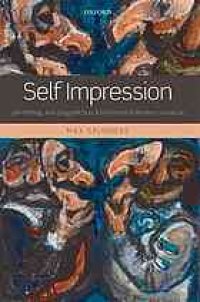"A very important intervention into a number of arenas ... a very welcome contribution to the fields of auto/biographical, late nineteenth-century and modernist studies ... opens up new ways of thinking about life-writing and, in particular, the relationship between autobiography and fiction ... a very rich and rewarding study ... it engages very productively with autobiographical theory ... It is, as a whole,
subtle, informed and persuasive.' Laura Marcus, Goldsmith's Professor of English Literature, University of Oxford" "T̀his is a captivating study ... the range of the book is ... breathtaking; it is a work of great scholarship and subtle erudition ... a work of strikingly new perspectives on modernism ... Saunders's work is ambitious in scope, depth and conceptualisation, while the sophistication of his theoretical analyses are couched in a readable style ... It Will make an extremely important and original contribution to the fields of nineteenth-and twentieth-century literary criticism and is a welcome and much needed addition to recent theorisations of life-writing.' Dr Susan Jones, English Fellow, St Hilda's College, University of Oxford.""Modernism is often characterized as a movement of impersonality; a rejection of auto/biography. But most of the major works of European modernism and postmodernism engage in very profound and central ways with questions about life-writing, Max Saunders explores the ways in which modern writers from the 1870s to the 1930s experimented with forms of life-writing--biography, autobiography, memoir, diary, journal--increasingly for the purposes of fiction. He identifies a wave of new hybrid forms from the late nineteenth century and uses the term àutobiografiction'--discovered in a surprisingly early essay of 1906--to provide a fresh perspective on turn-of-the-century literature, and to propose a radically new literary history of Modernism." "Saunders offers a taxonomy of the extraordinary variety of experiments with life-writing, demonstrating how they arose in the nineteenth century as the pressures of secularization and psychological theory disturbed the categories of biography and autobiography, in works by authors such as Pater, Ruskin, Proust, M̀ark Rutherford', George Gissing, and A.C. Benson. He goes on to look at writers experimenting further with autobiografiction as impressionism turns into Modernism, juxtaposing compelling and original readings of key Modernist texts by Joyce, Stein, Pound, and Woolf, with explorations of the work of other authors--including H.G. Wells, Henry James, Joseph Conrad, Ford Madox Ford, and Wyndham Lewis--whose experiments with life-writing forms are no less striking. The book concludes with a consideration of the afterlife of these fascinating experiments in the postmodern literature of Nabokov, Lessing, and Byatt." "Self Impression sheds light on a number of significant but under-theorized issues; the meanings of the term àutobiographical', the generic implications of literary autobiography, and the intriguing relation between autobiography and fiction in the period."--Jacket.

